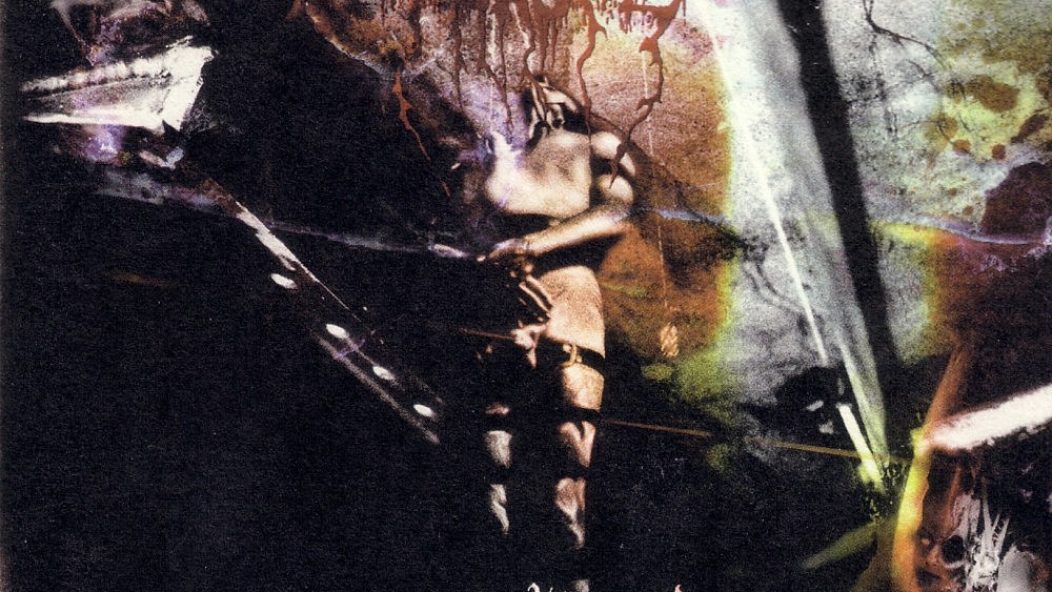
Darkthrone's 'Plaguewielder' Turns 15

…
In a 2010 interview with Isolation Grind, Darkthrone’s Gylve “Fenriz” Nagell says that two of their albums were basically the same: 1999’s Ravishing Grimness and 2001’s Plaguewielder.
Over the past four albums, Darkthrone’s style and sound have changed considerably. Is this a conscious progression/regression, or merely a natural evolution of the Darkthrone sound? Is Circle the Wagons the culmination of this stylistic shift?
Fenriz: we always changed, only 2 albums that were very the same was Ravishing Grimness and Plaguewielder from 99 and 01.
People often treat these albums as placeholders in Darkthrone’s discography. They’re frequently viewed as lackluster compared to more paramount efforts, like the band’s second, third and fourth albums—1992’s A Blaze in the Northern Sky, 1993’s Under a Funeral Moon and 1994’s Transilvanian Hunger—as well as later albums that saw Darkthrone experimenting with other subgenres like crust punk on 2006’s The Cult is Alive, traditional heavy metal on 2007’s F.O.A.D..
Comparatively, Ravishing Grimness and Plaguewielder have been regarded in reviews as simply the kind of albums that kept Darkthrone going from the early black metal days to their new ventures. Indeed, many fans seem to agree with Fenriz that these two recordings are similar to each other, and maybe even a little uninspired. As Plaguewielder turns 15, though, it’s worth another look: Is it really just a placeholder? Does it really feel like a rehashing of Ravishing Grimness? Or is something else at work here?
A 2013 Stereogum ranking of Darkthone’s albums sums up the similarities between the two albums. Both contain six songs: five composed by Ted “Nocturno Culto” Skjellum, one composed by Fenriz, all six with lyrics by Fenriz. The songs that Fenriz did compose are more classic heavy metal, while Nocturno Culto’s songs are more melodic black metal. Both albums were recorded at Studio Studio in Toten, Norway, and have a better production quality than Darkthrone’s previous efforts.
One of the major differences between Ravishing Grimness and Plaguewielder, though, as Stereogum points out, is Fenriz’s drumming. It’s better on Plaguewielder–just one of the things that sets the album apart as slightly more successful.
Fenriz seems more in control on Plaguewielder, never lagging behind as he tended to do on Ravishing Grimness. His drums carry these songs forward; they take charge with more aggression, force and speed. A 2011 interview on the blog Quadrivium reveals that Nocturno Culto may have been the guiding force behind Fenriz’s pulled-together drums.
“Sometimes I have to decide things for [Fenriz] because at times we disagree, but [on Plaguewielder] the music itself forced us to play more technically. I told him that when he is doing small technical stuff on the drums, in the tempo that Darkthrone are playing, I think it’s brilliant.”
While writer J. Andrew guessed that a first-time listener to Plaguewielder might think it was one of Darkthrone’s imitators when he wrote about it for Decibel, he also pointed out that this album demonstrates Darkthrone’s knack for weaving in twists of other genres. Opener “Weakling Avenger” features chord progressions and riffs that nod to both Enslaved and Celtic Frost, who blended prog with occult metal before Darkthrone did. Further pure rock and progressive elements dart in and out of Plaguewielder’s six songs.
Certainly, with its seamless blend of black and classic heavy metal, charged riffs and a rhythm that keeps listeners on their toes, “Weakling Avenger” is a strong contender for being the star of Plaguewielder, and also presages their work on The Cult is Alive and its successors a few years later. Fenriz’s drums, apparently encouraged by Nocturno, really shine on “I, Voidhanger”. They’re wild in the best possible way.
Admittedly, other moments in each of these songs can sometimes feel too similar to each other, and yes, to the songs of Ravishing Grimness as well. But Plaguewielder has a strength Ravishing Grimness doesn’t, a strength that should keep it on the map when we think about Darkthrone’s most worthwhile albums.
Plaguewielder reveals that by this point in their discography, Darkthone were confident in their black metal capabilities, and they were prepared to deliver another punch in that genre. It reveals that for such an influential band, even Darkthrone’s influences had to come from somewhere, too, and they happen to be especially agile at incorporating hints of each one of those sounds.
…
…











